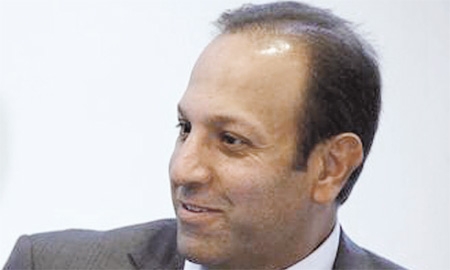
Today, Carlos Slim’s son, Marco Antonio Slim, runs the Inbursa Group as president and general director. The company has 96 offices around Mexico and operates two call centers. Mr. Slim shares his insight on the group’s expansion, its commitment to the country, and the robust state of Mexico’s financial sector.
What would you underscore from the role that the federal government and the private sector have played in Mexico’s economic development and in positioning the country as one of the world economies with the greatest growth forecast?
One important characteristic of emerging countries is that we’ve been obligated by the world powers and international qualification systems to maintain strong fiscal discipline. Mexico finds itself in a very good position with respect to other developed countries, thanks to its fiscal policy, the healthy state of affairs of its public finances, and the high levels of capital and liquidity of the banks. These factors allow Mexico to make the investments it needs.
Since the crisis of 1995, some 80% of the quota lies in the hands of foreigners. How would you describe the Mexican banking sector in terms of capital and what is Inbursa doing to gain more market share?
The fact that the banking sector is dominated by foreigners means that Mexican financial groups must take on more responsibility and be even more committed to our country. Any business, of course, has to some extent a responsibility toward Mexico, but the financial sector holds special relevance, as it manages society’s resources and channels them into investment. If banking slows down, so does the country’s growth. It is due to this commitment to Mexico that we’re working to increase our presence in the market.
What have been some of the highlights of Inbursa’s recent history?
Inbursa is growing. In this recent global crisis, we’ve doubled the size of our bank portfolio, tripled the number of branches and financed more than 30,000 SMEs. Furthermore, we’ve taken steps to continue developing the bank, such as with the acquisition of Chrysler’s financial business.
As a financial group we’re highly committed to granting loans to companies, as it is they who ultimately contribute to the country’s development and to job creation. In the case of SMEs, we entered the market just two or three years ago and today our participation stands close to 30% in the sector of credits for micro-SMEs. This is increasing by 1,000 new loans each month.
In your opinion, what are Grupo Inbursa’s greatest strengths?
First, I’d say our financial solidity has been key to the business’s development. Inbursa permanently has a high level of capital and reserves, with 18% participation in the credit reserves market, a number that rises every year.
I’d also highlight the quality of our human capital and that, in our 45 years, we’ve never required any kind of state intervention or bailout, and there’s never been a need to modify the control over the company.
Lastly, I’d underline our base of operations, which has allowed us to take advantage of opportunities thanks to a positive risk assessment. This is essential in all areas of our business.
What is the group’s expansion policy, especially in terms of branches and international growth?
The most important step in these past two years has been the opening of branches and ATMs. Now we’re focused on consolidating this infrastructure and bringing in new clients.
International expansion isn’t a priority. Mexico presents plenty of opportunities for growth, as you can see from the penetration rate of banking in relation to the GDP. We would like to widen our share of the national market. Under special circumstances, we participate in loan operations in Latin American, but we always carry out the operations from our base in Mexico.
As a business leader, what are Mexico’s greatest attractions for potential investors and how would you like them to see the country?
This is a country with great investment opportunities, with a rather healthy financial situation and highly developed infrastructure. Mexico is a country that can grow quite rapidly.
I’d like North Americans to view Mexico as a country of opportunities. Everyone who’s invested here has had positive results. Inbursa has believed in and grown with Mexico, which is why we continue investing more and realizing new projects.
0 COMMENTS